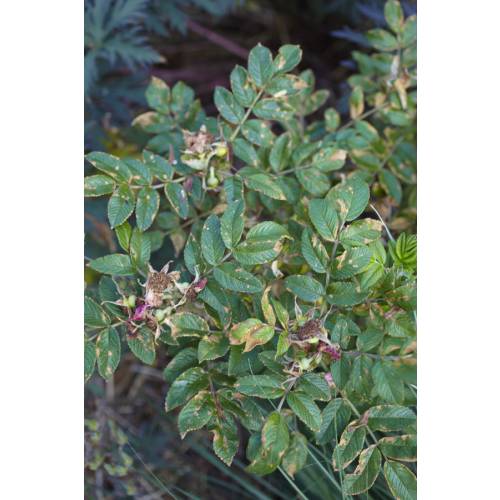
Nourish your plants
Why fertilize ?
- Details
-
Fertilize, means nourish the plants, it is a way giving them some food. Be careful: this must only be envisaged if the plant does not find what it needs in the soil. Normally, a plant should be able to fend for itself… A plant never withers when it lacks fertilizer: at worst, it ceases to grow.
Necessary fertilization
When the soil is poor, as it is often the case around new houses, one must envisage adding extra food for the plants. This poor soil (rubble) cannot nourish a young hedge, or trees, which although they would not die would grow slowly. In normal soil, that has been cultivated for years, resources are sometime limited for some of the plants that we grow there. Very big bamboos for example, are incredibly greedy. Unless you are lucky enough to have rich soil, it is worth considering feeding your plants.
When additional feeding is indispensable
Finally, there are poor soils, like those stony ones and those on a slope that we find in the south, or the very sandy soil found on the Atlantic coast and in the Northeast. These soils are so poor that even the agronomists often speak of "skeleton like soil"! Facing this type of situation, fertilizer is indispensable if one wants to obtain luxurious plants. Ideally, we should choose our plants according to the soil available. It would be preferable in poor soil to plant frugal plants such as heathers or broom, even try a few and leave those that grow best. It is by far the best solution if ease of maintenance is the goal. However, from a visual point of view, it may not be to your taste. If you are looking for lush plants and you have poor soil, be prepared to nourish your plants.
Fertilizer, compost and company
When one speak of fertilizing, our first thought is of fertilizers. It is a mistake! Fertilizers are products, of chemical or organic (naturals) origins that liberate nutrients in the soil. It is rare that one fertilizer suits all type of plants. In general, a fertilizer is only suited to a certain type of plant. The only true polyvalent fertilizer is compost! This product obtained from complete decomposition of plant matter brings all the nutrients needed to the garden plants, regardless of their type. Besides fertilizers and compost, we can also nourish the plants with a third option: By spreading around their roots materials that are going to decompose. Mulches such as flax fiber, hemp or cocoa shells have the ability to decompose rapidly when in contact with the soil and therefore nourish the plants nearby. Making your own compost or mulches that will transform into humus around the plant’s roots does take a little time. When time is of the essence, fertilizers allow time to be gained.
Beware of using too much fertilizer !
Fertilizers must not be used haphazardly, or setbacks will occur. The major risk is to give too much fertilizer. We are under the impression than adding a little bit more than the stated dose will not cause any harm … when in reality, we damage the plant. A plant, in order to explore the resources of the soil, forms as many roots as necessary. It has a tendency to form more of them when it is « hungry » than in a rich soil, where nutrients are found in abundance. If we add too much fertilizer, the roots cannot cope with all the nutrients. Therefore either some of the roots perish, or they absorb everything and the whole plant dies. - Photos (1)

